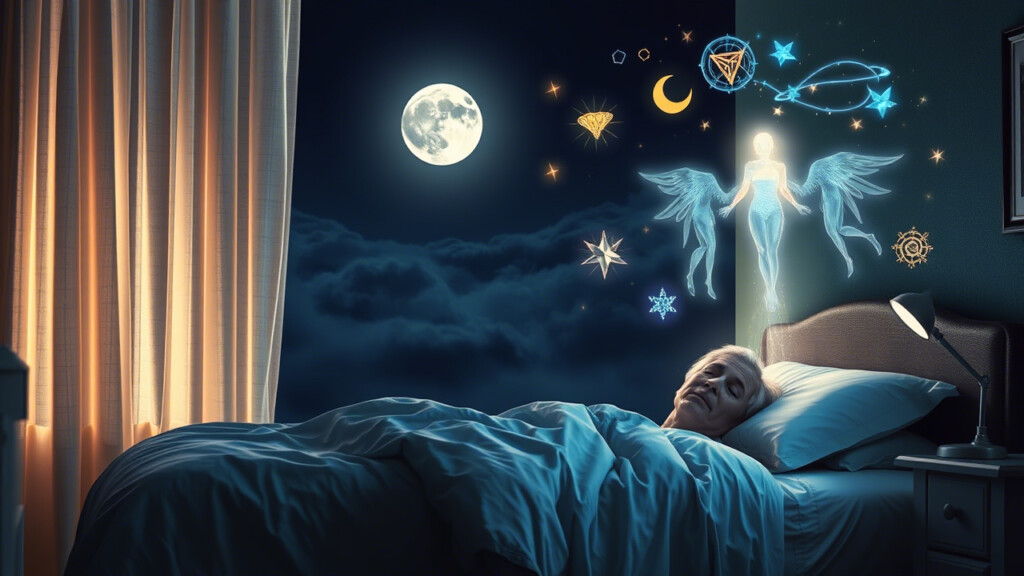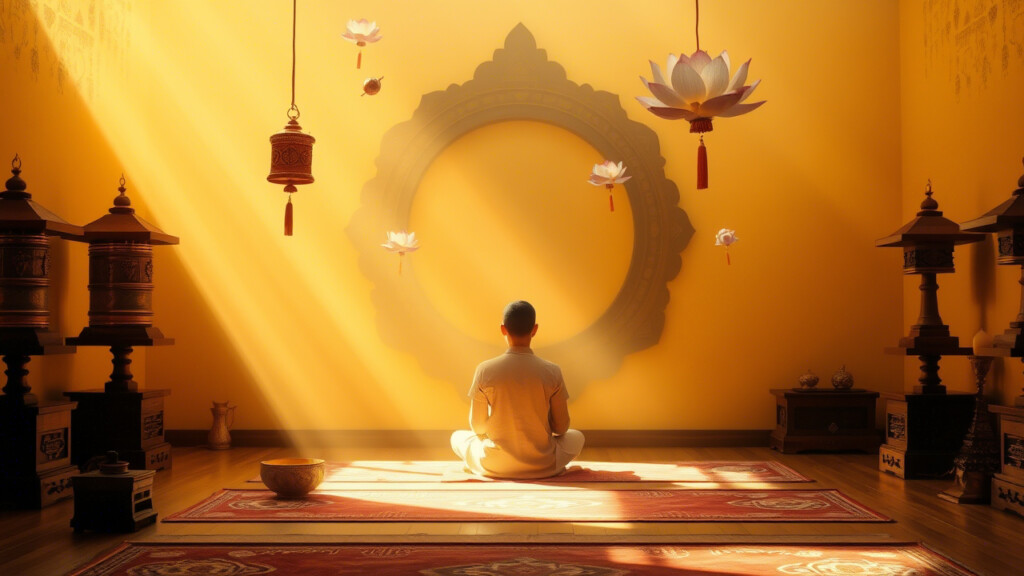Dreams have always been a mysterious topic, especially when they seem to foretell the future. However, neuroscience and psychology suggest that instead of being a window to the future, dreams are actually a mirror reflecting the thoughts, emotions, and information that the brain is processing—an unconscious analytical process that sometimes leads to fascinating coincidences, making us mistake them for prophetic abilities.

Consciousness and Dreams – Influencing Factors
Examples that science has analyzed and explained about dreams:
- You dream that your friend gets fired, but perhaps you had previously noticed signs—a frown from the boss—that your conscious mind ignored but your subconscious remembered. This is implicit memory at work.
- Dreaming of accidents or loss doesn’t mean it’s an omen, but rather the brain’s way of processing stress through dream imagery (Emotionally Driven Dreams).
- Selective recall bias makes us remember only the dreams that match reality, creating a sense of prediction. Just like when you scroll through social media all day, but only the posts that match your mood really make an impression, the brain also links random events to create a meaningful story, even if it doesn’t exist.
In summary, according to psychological and scientific analysis, it could be that your brain has collected information, connected data, and made logical inferences, resulting in a random coincidence. And you have a keen intuition, often called a sixth sense.
Dreams predicting the future?
But explanations based solely on science are not enough. I will share a story, a very interesting experience of mine:
When I was young, around 2001-2002, I was in 7th-8th grade in a rural village in Ha Nam, Vietnam—a time when technology was not yet widespread; phones, TVs, and computers were still unfamiliar in rural life. Those were the innocent years of my childhood, filled with simple childhood games.
In my hometown, playing the lottery was a common cultural habit. Like many kids, I was curious and mimicked the adults. Strangely, I won 6 out of 7 times in a row—an unbelievable streak that shocked those around me. With odds of only 1/100, this was beyond mere luck.
My dreams were not mystical at all. They were just images of everyday life: I chatted with a friend born on September 5th, and then unconsciously chose the number 59; or I dreamed of a snake and was prompted by adults to write down the number 16 or 61. There were no numbers appearing clearly, no voices whispering in my ear. They were just fragments of memories, random events creeping into my sleep.
What’s even more interesting is: other people also tried to apply similar reasoning when they had dreams, but they weren’t accurate when they “played the lottery.” There were also many times when I didn’t play the lottery myself but just told my dreams to others—and they won.
Back to the scientific part, to explain my case, are dreams real?
- Confirmation Bias: The brain tends to remember the times when dreams coincide with reality and forget the times when they don’t. This creates the illusion that dreams have predictive abilities. For example, if you dream of an accident and a few days later see news about an accident, you might think you’ve “predicted” it, but in reality, you’ve forgotten hundreds of other dreams that were unrelated. This is a theory pointed out by Daniel Kahneman, a renowned psychologist, in his book Thinking, Fast and Slow.
- Retrocausality: Memory is not an accurate record but can be reconstructed over time, causing us to remember dreams in a way that fits the events that have occurred. Elizabeth Loftus, a memory researcher, has demonstrated this through experiments on false memory. She was able to make participants believe they had met Mickey Mouse at Disneyland, even though it never happened. Similarly, when we recall a dream, we may unconsciously “edit” the memory, making it seem more aligned with reality.
- Predictive Processing: The brain constantly analyzes available data to predict the future, even if we are not consciously aware of it. Karl Friston, one of the leading neuroscientists, has proposed that the brain always tries to create a model of the world to optimize its chances of survival. For example, if you unconsciously notice signs that the company is in trouble—like a stressed boss, colleagues being laid off—you might dream of being fired. When that happens, it seems like the dream predicted it, but in reality, it only reflects what your brain had already absorbed.
These studies all point out that it’s not about seeing the future, but unconsciously reading its patterns!
But if this is a “lucky streak,” why did it only happen to me and not repeat with others? A random lucky streak cannot be so highly personal, right?
Someone said, “You’re telling a story from 2001, almost 30 years ago. Is your memory reliable? Are you making this up??? Were those 6 out of 7 days really consecutive, or are you combining them from the whole year?”
=> No! You don’t have to believe me. I just want to know… have you ever experienced anything similar? It’s a memory and an experience that cannot be distorted; of course, there must be a reason. Since I achieved 6 out of 7, relatives and neighbors often asked, “Did you dream anything today?” and the nickname “number prodigy” was given to me by the neighbors.
So, science hasn’t fully convinced me. Could it be a spiritual mystery?
Buddhist Spirituality’s Interpretation of Dream Omens

According to the Buddhist spiritual concepts that I have researched, three things can be mentioned: Phước (Merit), Duyên (Fate/Karmic Connection), and Lộc (Blessing/Windfall):
- Phước (Merit) – Inheriting good karma from past lives: According to Buddhism, merit is accumulated from good deeds in past lives or in this life. If you have great merit, you will enjoy good things without much effort.
- Duyên (Fate/Karmic Connection) – A test from the universe: Dreams that coincide with reality could be a sign of a temporary spiritual opening, giving you a glimpse that this world operates according to invisible laws that we do not fully understand. If you know how to grasp it, you can unlock deeper intuition; if you ignore it, it may just be a fleeting phenomenon.
- Lộc (Blessing/Windfall) – A gift from ancestors: If this is lộc, it could be a gift from your ancestors—a form of short-term luck or a sign that you have a special destiny. However, this lộc is not “free”; if you don’t know how to preserve it or use it properly, it will disappear as if it never existed.
And…
Science explains my dreams as a combination of a keen subconscious and random probability. Buddhist spirituality suggests it could be merit, fate, or a blessing—concepts that go beyond conventional logic. Whatever it is, that experience remains a unique memory, suggesting that life may contain mysteries that both science and spirituality only partially touch upon. Which explanation do you lean towards: a brilliant brain, a series of coincidences, or a sign from the invisible realm?
